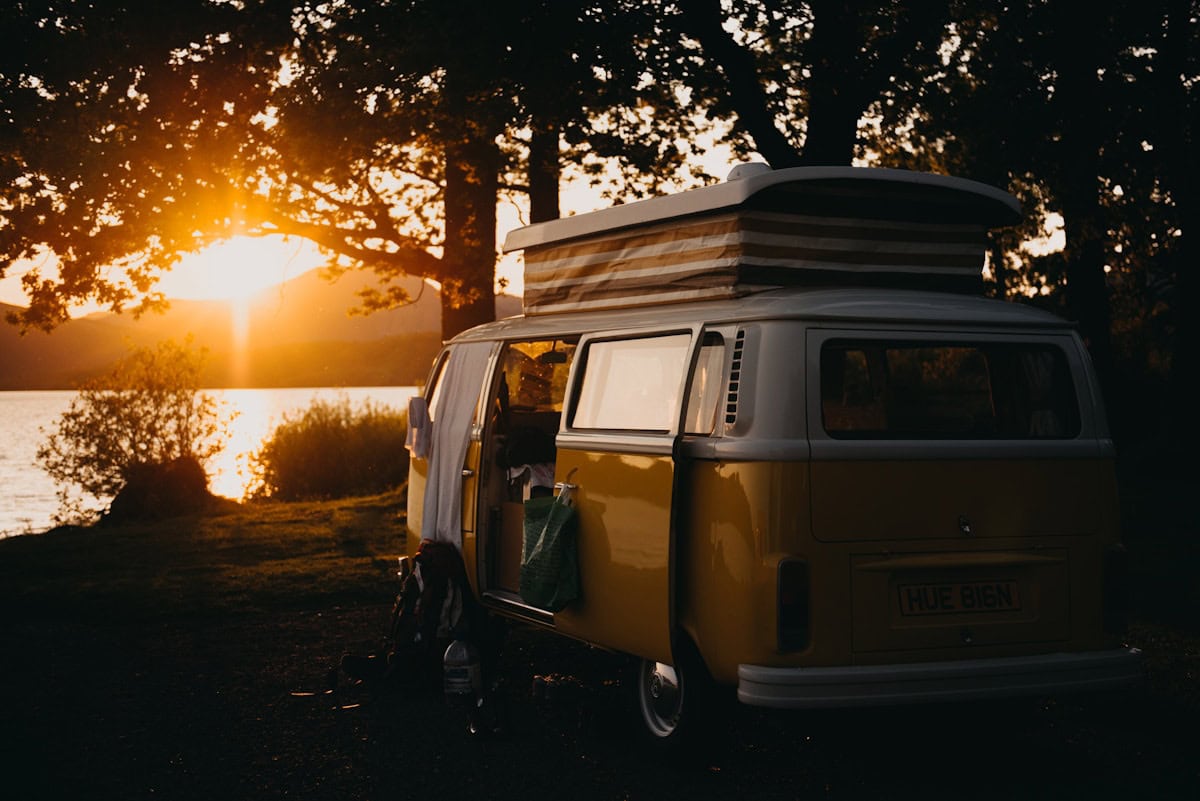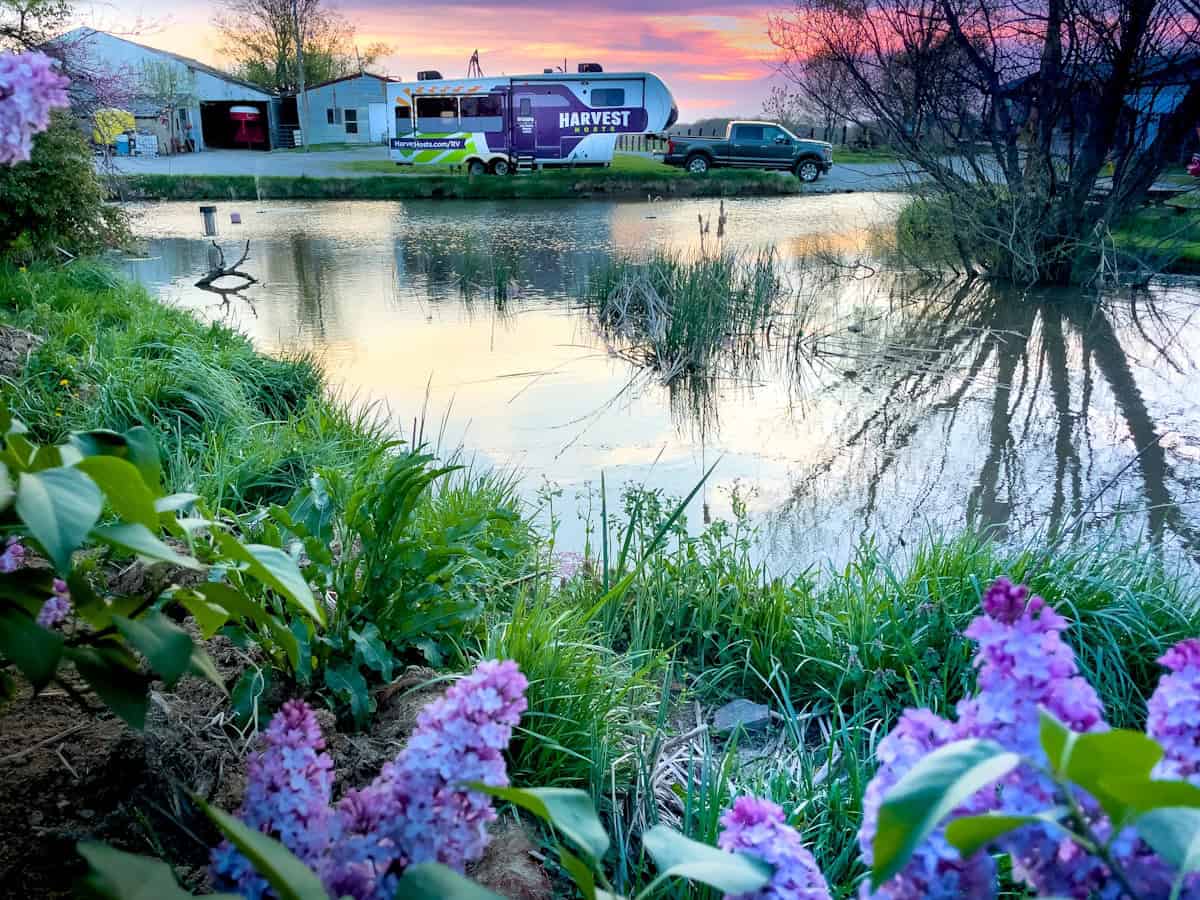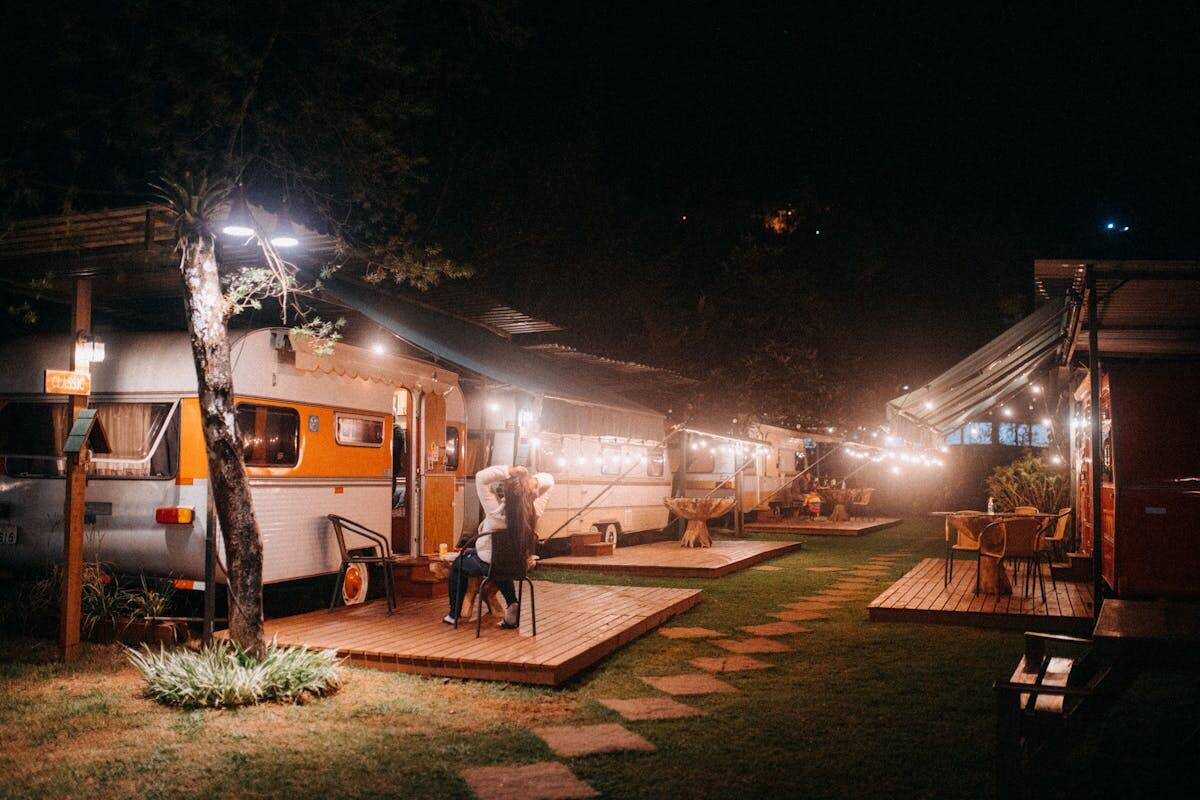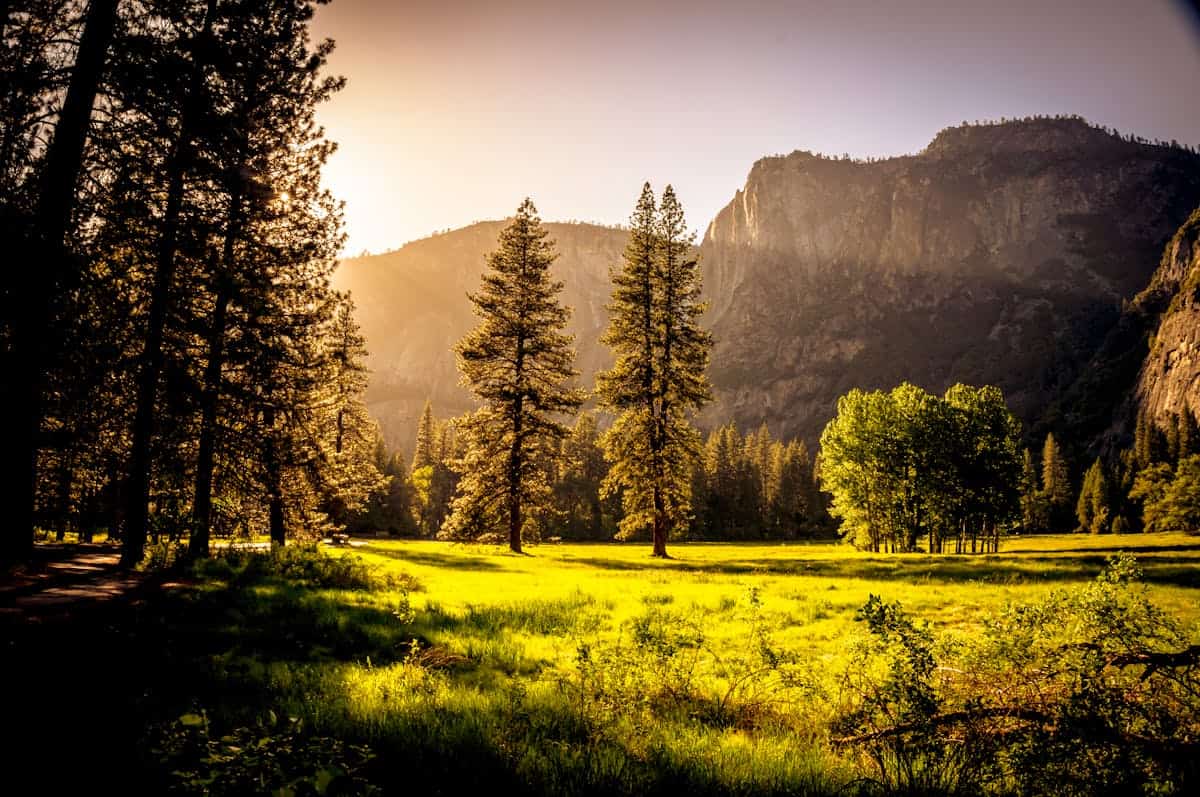
Finding Peace on the Road: Your Guide to Restorative RV Park Experiences
By: Frayed Passport
Skip to Section
Modern life moves at an exhausting pace. Between work deadlines, family obligations, and the constant ping of notifications, finding genuine moments of calm has become almost impossible.
So how about a reset?
Road trips give us something our hyperconnected world rarely provides: the opportunity to completely disconnect and reset our nervous system through immersing ourselves in nature.
Unlike traditional vacations that pack every moment with activities and sightseeing, a restorative road trip experience prioritizes slowing down, breathing deeply, and reconnecting with the rhythms of nature. This approach to travel focuses less on covering ground and more on finding ground – literally and figuratively.
Let’s talk about how hitting the road for a reset – particularly through RVing and camping – might just be one of the best mental health decisions you’ll make all year.
Nature’s Healing Power

Photo by Aarón Blanco Tejedor on Unsplash
Research consistently shows that spending time in natural environments reduces cortisol levels, lowers blood pressure, and decreases symptoms of anxiety and depression. The Japanese practice of shinrin-yoku – forest bathing – demonstrates how simply being present among trees can boost immune function and improve mental clarity.
Campgrounds amplify these benefits by giving us extended exposure to those healing environments. Instead of grabbing a few hours in nature between urban hotel stays, you’ll wake up surrounded by trees, fall asleep to the sounds of crickets and a breeze, and spend your days moving at the pace your body naturally wants to adopt.
Choosing RV Parks That Nurture Your Soul

Photo by Joel Holland on Unsplash
Not all RV parks offer the same potential for restoration. Some focus on entertainment and activities, while others prioritize connection with the natural world. When seeking a truly restorative experience, look for parks that offer specific elements conducive to peace and renewal.
Natural Settings Over Artificial Amenities
Parks located in forests, alongside rivers, or near mountains give you the perfect environmental foundation for restoration. If you spend your days surrounded by concrete and artificial lights, you’ll feel the difference immediately when you step into natural settings where gentle, organic shapes and natural light patterns help regulate your sleep cycles.
Quiet Policies and Peaceful Atmospheres
Some RV parks cater to families with children and groups seeking social activities. While these places serve their purpose, you might want to find a park that enforces quiet hours and attracts travelers seeking peace over entertainment if restoration is your goal.
Proximity to Hiking Trails and Water
You’ll want easy access to walking paths through natural areas and nearby streams, lakes, or coastlines. These provide opportunities for meditative movement and exposure to negative ions, which naturally boost your mood and mental clarity.
Spacious Sites with Natural Barriers
Cramped RV parks with sites packed together will make it nearly impossible for you to find the solitude and privacy you need. Look for parks that offer well-spaced sites, separated by trees or natural landscaping, rather than those that are just parking lots with hookups.
Parks like Cottonwood Creek RV Park in Texas exemplify these qualities, with peaceful natural surroundings designed for relaxation rather than cramming in activities.
Creating Your Personal Sanctuary
Even within the confines of your RV site, you can establish an environment that supports deep relaxation and restoration. The key lies in making intentional choices about how you arrange and inhabit your temporary space.
Establishing Boundaries Between Indoors and Outdoors
Many RV travelers spend most of their time inside their vehicles, missing the restorative benefits of outdoor living. You can create defined outdoor spaces using portable furniture, rugs, and lighting that encourage you to step outside and remain there for extended periods.
Set up a comfortable seating area under your awning or beneath nearby trees. This becomes your meditation space, reading nook, and morning coffee sanctuary. The simple act of moving daily activities outside will fundamentally change your relationship with your environment.
Incorporating Natural Elements
Collect stones, interesting pieces of driftwood, or pinecones from your surroundings to create small, fun arrangements around your site. These natural decorations help blur the boundaries between your temporary home and the wilderness that surrounds it.
Consider bringing battery-powered fountain pumps to create gentle water sounds if your site lacks proximity to natural water – the sound of moving water has profound calming effects on your nervous system.
Managing Artificial Light and Sound
Use warm-toned LED string lights or lanterns instead of harsh fluorescent lighting in the evenings. Soft illumination supports your natural melatonin production, creating an environment that helps you unwind.
Keep electronic devices to the minimum necessary levels – the constant background hum of generators, air conditioners, and entertainment systems can prevent the deep relaxation that comes from hearing natural soundscapes.
The Art of Slow RV Living

Photo by Matheus Bertelli on Pexels
Restorative RV experiences require fundamentally different approaches to time management and daily rhythms compared to typical vacations or even regular RV trips focused on covering territory.
Following Natural Light Cycles
Instead of maintaining your usual sleep schedule, allow your body to sync with sunrise and sunset. Camping therapy helps reset disrupted sleep patterns that contribute to fatigue, mood disorders, and sleep problems.
Wake with the first light and spend time outside before checking your phone or making plans. End active pursuits when darkness falls, using evening hours for quiet reflection, gentle conversation, or contemplative activities.
Taking Time Without Structure
Leave large blocks of time completely unscheduled. It might feel uncomfortable initially, especially if you’re accustomed to packed calendars, but unstructured time allows for the kind of rest that restores energy rather than merely providing distraction.
Resist the urge to fill every moment with activities or entertainment. Sometimes, the most restorative thing you can do is sit quietly and watch clouds move across the sky or listen to the wind moving through the trees.
Moving at a Walking Pace
When you do engage in activities, choose those that happen at a walking pace or slower. Long, meandering hikes without destination goals provide exercise while maintaining the meditative quality that supports restoration. Avoid attractions that require driving, rushing, or competing with crowds for limited time slots. These experiences can increase stress rather than reduce it.
Developing Daily Rituals that Support Inner Peace

Photo by André Cook on Pexels
Consistent daily practices help shift your nervous system into rest mode and maintain that state throughout your stay. These rituals serve as anchors, keeping you connected to your intention for peaceful travel.
Morning Grounding Practices
Begin each day with practices that connect you to your natural surroundings and set a calm tone for the hours ahead. This might include barefoot walking on grass or earth, gentle stretching outdoors, or simply sitting quietly with your first cup of coffee while watching the world wake up around you.
Avoid checking your phone, making plans, or engaging in stimulating activities until you’ve had at least 30 minutes of quiet time. This protected morning space becomes increasingly important the longer you stay in one location.
Afternoon Rest and Reflection
Many cultures incorporate afternoon rest periods that honor the natural energy dip most people experience in mid-day. Use this time for reading, journaling, or simply lying in a hammock without any agenda beyond rest.
If you do engage in activities during afternoon hours, choose gentle ones like nature photography, sketching, or slow walks that maintain rather than increase your energy levels.
Evening Wind-Down Practices
Develop consistent evening routines that signal to your body and mind that active time is coming to an end. You can light candles, make herbal tea, do gentle yoga, or spend time gazing at stars – anything peaceful!
Keep evening conversations friendly and avoid topics that create excitement or stress; this is a time for quietly processing the day and preparing for restful sleep.
Extending the Benefits Beyond Your Trip

Photo by Andrea Davis on Pexels
The restoration you experience during peaceful RV travel can continue to benefit your life long after you return home, but this requires intentional practices to integrate what you’ve learned into your daily routines.
Bringing Nature Rhythms Home
Notice which natural rhythms supported your well-being during your RV experience and consider how to incorporate similar patterns into your regular schedule. This might mean waking earlier to have quiet time before the day begins or establishing regular periods of unstructured time.
Creating Peaceful Spaces in Your Regular Environment
Apply the principles you used to create a sanctuary around your RV site to your home environment. This might involve rearranging furniture to maximize natural light, adding plants or natural elements to your living space, or establishing quiet zones free from electronic distractions.
Regular Return to Restorative Environments
Plan regular returns to peaceful RV destinations, even if only for weekend trips. The anticipation of these restorative experiences can help sustain you through busy periods, and the actual experiences provide ongoing opportunities to reset and recharge.
The goal isn’t to permanently escape from regular life, but rather to develop the skills and awareness needed to find peace and restoration within whatever circumstances you face. RV travel provides an ideal laboratory for developing these capabilities in supportive environments that make the learning process enjoyable rather than challenging.
Happy Travels!
Featured image by Kevin Schmid on Unsplash
Information published on this website and across our networks can change over time. Stories and recommendations reflect the subjective opinions of our writers. You should consult multiple sources to ensure you have the most current, safe, and correct details for your own research and plans.
Frayed Passport is a participant in the Amazon Associates Program, an affiliate advertising program designed to provide a means for sites to earn advertising fees by advertising and linking to Amazon.com. We also may share links to other affiliates and sponsors in articles across our website.





